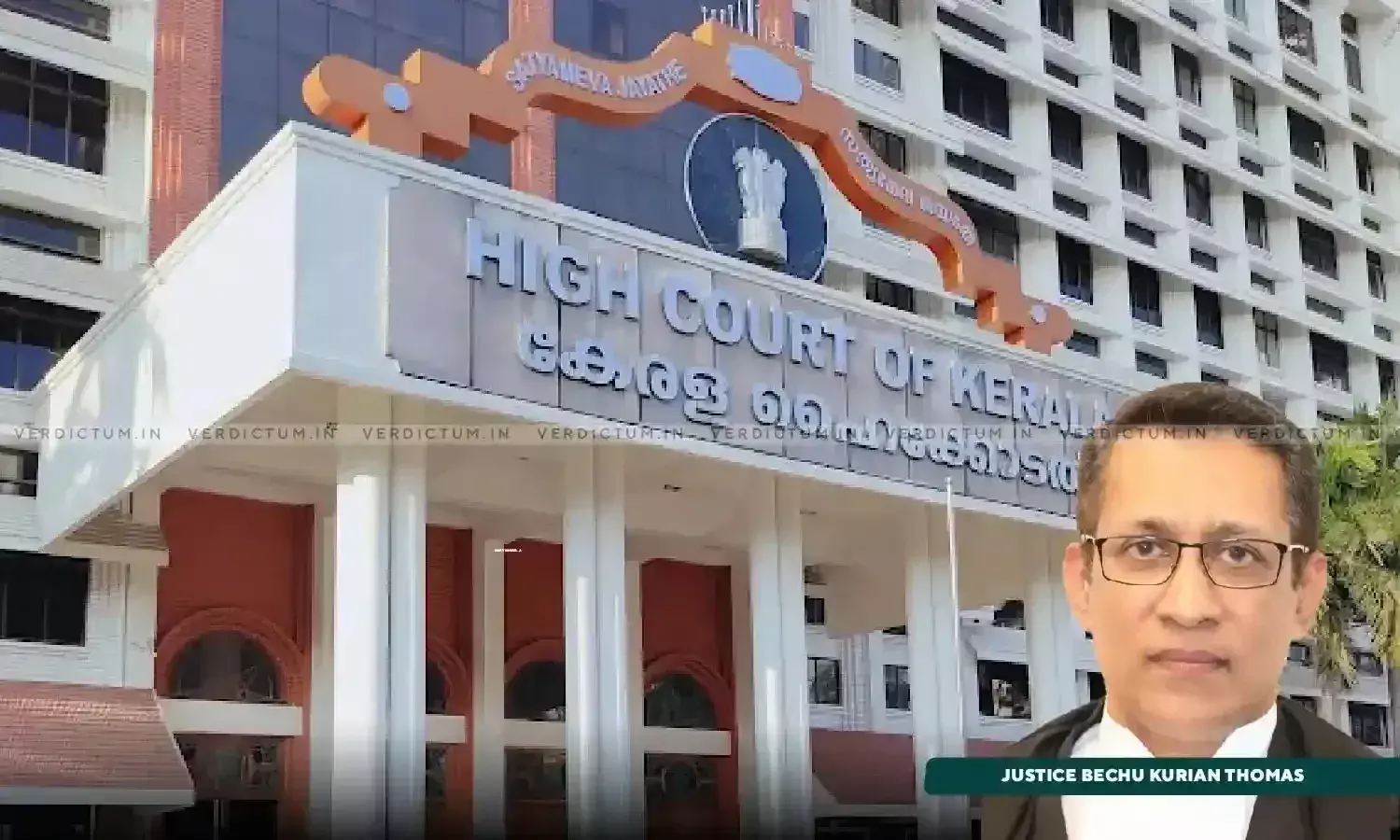Ideal To Take Suspect Before Magistrate; But Not A Mandatory Requirement U/S. 50 NDPS Act: Kerala High Court
The High Court held that while the empowered officer must mandatorily inform the suspect of the right to be searched before a Magistrate or Gazetted Officer, the requirement to take the suspect before the nearest Magistrate is not a mandatory condition.

The Kerala High Court has set aside the conviction of an appellant under Section 22(c) of the NDPS Act, holding that although informing the suspect of the right under Section 50(1) is mandatory, the duty to take the suspect before a Magistrate is not a mandatory requirement.
The Court was hearing a criminal appeal arising from the judgment of the Additional Sessions Court, which had convicted the appellant and sentenced him to rigorous imprisonment for thirteen years with a fine.
A Bench of Justice Bechu Kurian Thomas while clarifying that under Section 50(1) of the NDPS Act, “the choice whether to take the suspect to a Gazetted Officer or to a Magistrate is that of the empowered officer and not that of the suspect or the accused”, held that “though the obligation of the empowered Officer under section 50(1) of the Act to inform the suspect of his right to be searched is mandatory, the requirement to, endeavour to take him to a nearest Magistrate, cannot be regarded as a mandatory requirement".
Advocate Saipooja appeared for the appellant, while Sreeja V., Public Prosecutor, appeared for the State.
Background
As per the prosecution, the appellant was found in possession of 174 ampoules of Lupigesic and 24 unlabelled ampoules, each containing 2 millilitres of Buprenorphine. After arrest and seizure, a final report was filed, and the trial court convicted the accused, imposing 13 years’ rigorous imprisonment and a fine of ₹1 lakh.
In the appeal, multiple procedural lapses were alleged: delay in producing the seized material before the Court, non-compliance with Section 50 NDPS Act, improper sampling under Section 52A, and absence of independent witnesses. One specific argument was that the NDPS Act specifies commercial quantity in grams, but the charge spoke only in millilitres, allegedly making the prosecution unsustainable.
Court’s Observation
The Kerala High Court, upon examining the material on record, noted that the seized substance was Buprenorphine, which appears at Serial No.169 of the NDPS Schedule, where the commercial quantity is 20 grams.
Rejecting the contention that the quantum of contraband seized was specified in millilitres and not in grams, and hence there was nothing to prove that the contraband seized falls within the commercial category, the Bench held that the Chemical Examiner’s report showed that each millilitre contained 0.299 mg of the drug. With 194 ampoules, each holding 2 ml, the total narcotic content amounted to approximately 116 grams, far above the commercial-quantity threshold.
While rejecting the argument regarding millilitres, the Court ultimately allowed the appeal because the prosecution failed to explain the delay in producing the seized material before the Magistrate, casting serious doubt on the integrity of the case. The Court noted that the records did not show who had custody of the seized material for several days and that the seizure mahazar lacked a specimen seal, thereby affecting evidentiary reliability.
On Section 50 compliance, the Court held that the empowered officer is duty-bound to inform the suspect of the right to be searched before a Magistrate or Gazetted Officer. The Bench noted that the suspect was informed of this right, and a Gazetted Officer thereafter arrived and supervised the personal search. It held that Section 50 applies only to personal search and not to bags or containers.
The Court observed that while it may be ideal to take the suspect before a Magistrate and that such an endeavour should be made, the statute does not impose this as a mandatory requirement. The duty to inform is mandatory, the Court observed, but the requirement to take the suspect to the nearest Magistrate is not.
“On an appreciation of the above principles it can be discerned that if there is delay in production of the contraband before the Court, in the absence of a reasonable explanation from the side of the prosecution, the credibility of the prosecution case will be affected. The accused will, in such circumstances, be entitled to the benefit of doubt”, the Court concluded.
Conclusion
Accordingly, due to unexplained delay in producing material objects before the Court and other evidentiary lapses, the appellant was given the benefit of doubt, the appeal was allowed, and the conviction was set aside.
Cause Title: Aneesh v. The State of Kerala (Neutral Citation: 2025:KER:84663)
Appearances:
Petitioner: Advocates Mohamed Sabah, Saipooja and others
Respondents: Sreeja V., Public Prosecutor for the State


